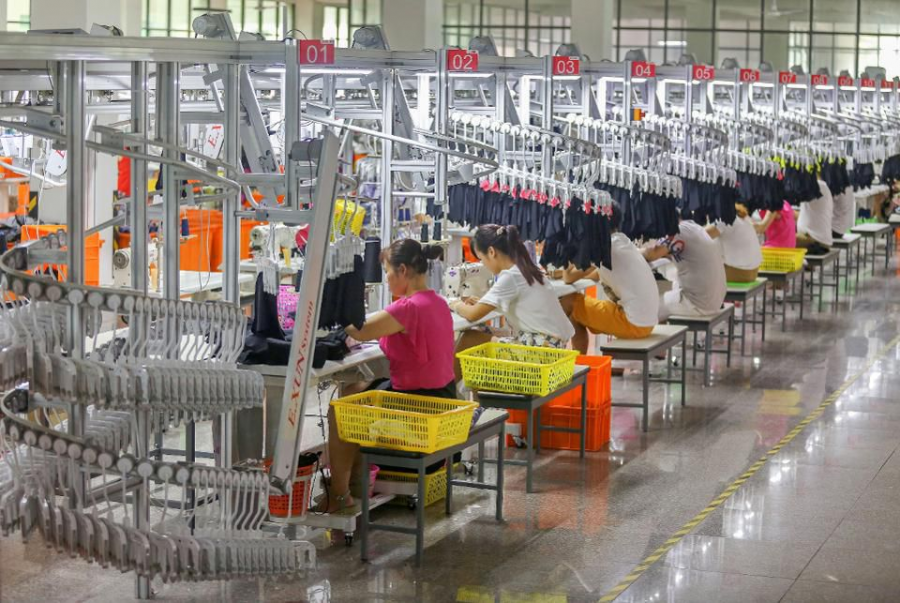The threat of global warming and climate change is more of an issue than ever, and one of the more surprising culprits is the fashion industry.
The fashion industry is said to be the second biggest polluting industry in the world, just behind the oil industry, and the concept of ‘fast-fashion’ is only making this idea worse. Fast-fashion is the idea of cheap clothing being mass-produced rapidly in order to replicate the trends seen on catwalks, or to reflect current trends in the global fashion industry and society. However, due to fast-fashion items being produced several times by a single retailer in a single week in order to keep up with demand, environmental concerns are more likely to be overlooked in order to reduce the cost and time of production for retailers.
Such concerns include, but are not limited to: water pollution, water consumption, textile waste and greenhouse gas emissions. The environmental impacts of these elements are serious and if we don’t change our outlook on the fast fashion industry in the next few years, the effects could be permanent.
Water pollution
As we get closer to summer, retailers will be increasing their usage of bright colours and prints to help us stay on trend in the summer months. However, textile dyeing is the second largest global polluter of clean water. It contaminates clean waters with toxic substances like mercury and lead, which can not only harm the aquatic life in these waters, but can also have health concerns for the residents who live nearby due to close exposure. There are also certain toxins that are used as fertilisers for cotton production that can pollute evaporation waters, and spread across the globe.
What can we do?
Certain countries maintain stricter environmental regulations when it comes to retail production. Supporting clothing that comes from countries such as the EU, Canada, US, or buying clothing made with natural fibres in order to reduce the amount of chemicals used in the production stages.
Water consumption
You may not immediately think that water is one of the biggest players in the fashion industry. However, it can take up to 200 tonnes of water to dye just 1 tonne of clothing. As well as this, 20,000 litres of water is needed to produce 1kg of cotton, which is having severe ecological effect. The Aral sea is turning into a desert as a direct result of cotton production. The same amount of water needed to produce one cotton shirt is the same amount of water that one person needs to drink for two and a half years.

What can we do?
Buy clothing that is made from recycled fibres, which involves a much lower level of water consumption for production.
Textile Waste
One of the more obvious consequences of fast fashion is the disposable nature of the retail industry. We as a society are prone to buying a piece of clothing, wearing it a few times, and then throwing it away. Needless to say, this results in only 15% of clothing in the western world being recycled, with the synthetic fibres used in around 70% of our clothing taking up to 200 years to decompose. As a throw-away society, this is filling up landfill sites more than ever, and leading to a huge amount of waste accumulation.

What can we do?
Buy clothing that uses recycled or naturally made fibres, and recycle or donate your old clothing to charity shops or clothing recyclers. The chances are, someone else will really love that piece of clothing you don’t want anymore.
Greenhouse gas emissions
The retail industry accounts for 10% of all global carbon emissions as a result of the large amount of energy needed to produce, manufacture and transport our clothing. The same synthetic fibres that are used in 70% of our clothes are made using fossil fuels, as well as the majority of clothing being produced in China and Bangladesh, two countries that rely heavily on the use of coal – the most carbon polluting form of energy.
What can we do?
As well as buying clothing made with natural fibres, and recycling your clothing. You can also help by buying clothing made in countries that use more renewable energy (EU countries such as Switzerland, Denmark and France have been recognised for their environmentally friendly fashion production).
These are just some of the environmental concerns surrounding the fast fashion industry, but if we can all make these small changes in our habits, hopefully we can prevent the effects of the retail industry from having a permanent effect of our environment.
By Faith Pring

